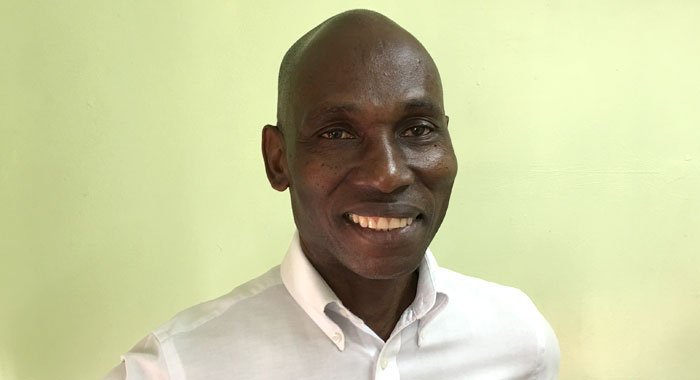As the elections draw near, the debate whether we should have diplomatic relations with China or Taiwan will heat up. We take you back to our Aug. 5, 2016 column which characterised the debate following the NDP announcement that it will disavow ties with Taiwan, and establish relations with the People’s Republic of China as a “tempest in a teapot”.
We argued then that tactically the announcement would have had more political impact had it come came before the last elections. With SVG reeling from difficult economic times, a compelling argument could have been made to the electorate to “try something new” with the hope that the People’s Republic of China, with all of its economic might, could have injected a much-needed stimulus with offers of infrastructural, educational and other forms of assistance.
In a recent interview on Boom FM, Party Leader Dr Godwin Friday backed away from the proposed switch in relations from Taipei to Beijing, as was proposed by Arnhim Eustace. This development is unfortunate because SVG could do with an injection of developmental assistance, which the Taiwanese refuse to offer.
The story of relationships with Taiwan has its roots in cold war politics. The communist revolution of 1949 in China chased the nationalist forces off the mainland to Taiwan. The United States and other western countries immediately embraced the nationalists, and used it as a capitalist showcase against what was then sold as the failures of socialism in the Soviet Union and China.
The Labour Party of Milton Cato, as well as most of the developing world, followed the cold war mantra of the West, recognised Taiwan and established diplomatic relations. Taiwan was projected as the sole legitimate representative of the Chinese people even though most Chinese lived on the Mainland.
All of this began to unravel after the secret visit of Henry Kissinger, the US Secretary of State, to Beijing in 1971. The United States established relations with China, broke relations with Taiwan and the dollar diplomacy started in earnest. Both Taipei and Beijing began aiding countries that will align with either side.
Currently, the People’s Republic of China has the diplomatic support of most of the independent nations in the world. Taiwan is recognised by only 14 of the 193 nations at the UN, with Belize, Haiti, St. Kitts, St. Lucia and SVG among them.
Taiwan and China are increasingly drawing closer. In fact, 40% of the foreign investment in China is believed to have an origin in Taiwan. The pro-independence government of President Tsai Ing-Wen continues to press the independence claim, but leaders in Beijing have maintained that they will never allow such a move.
China continues its diplomatic offensive to win new friends and to further isolate Taiwan. Certainly, if this effort succeeds, the talk of independence in Taipei will certainly recede.
Four years ago, we argued that the NDP decision to recognise the People’s Republic of China may be a blessing in disguise to our government. “It may offer a unique advantage to the government of PM Gonsalves to press the government of Taiwan for even more developmental assistance. Gonsalves, the skilled politician that he is, should see an opportunity to press for more assistance. The leaders in Taiwan may be hard-pressed to deny more assistance.”
Mr. Eustace’s announcement broke the hegemony which the Taiwanese held over our diplomacy in Asia. With both parties pledging their allegiance, Taipei sat comfortably with the knowledge that no matter what happened in our elections, relations were safe. Dr. Friday’s waffling on the issue has tightened Taiwan’s grip and weakened our negotiating power.
We see no benefit to the NDP or SVG in the change of position, and hope that the opposition party’s decision to downplay the switch is purely tactical.
All parties must now think just a little harder about the pros and cons of these relations. This must be a good thing, especially for those of us in SVG whose thought patterns on so many matters are staggeringly ossified.
This sad state of affairs is reflected in the politicisation of all things and the ways in which people line up based on which party they support. Gonsalves must be worried by the deep levels of anti-communist nonsense spewed by many of his spokesmen and women in their response to the NDP decision. The anti-communism reared its ugly head again when the coronavirus emerged earlier in the year.
Similarly, many progressives were equally sickened that some of the most backwards, reactionary and anti-communist elements, at the toss of a coin, jumped on the Beijing bandwagon. Only yesterday they were loudest in denouncing Gonsalves and the People’s Republic of China as communist, notorious for economic failure and wrecking economies. With the proposed shift by the NDP from Taipei to Beijing, China’s economic might and the supposed benefits that might flow were shamelessly touted.
Plain Talk had always maintained that the assistance our country received from Taiwan was much too low, bearing in mind that our county, for decades, remained a most dependable and stalwart supporter of Taipei. As a matter of principle, we have always advocated the establishment of relationship with the People’s Republic of China.
This was not an anti-Taiwan position. The argument was grounded in the fact that Beijing represents most Chinese people, was sensibly recognised by most independent nations and was the second-largest economic power in the world.
We have entered a new period in our conversation about our relationships with Taiwan and hopefully the rest of the world. The world is too complex a place for knee jerk, emotional responses. Statecraft demands much more. Plain Talk has confidence in a forward-looking, developing SVG. The critical question is: Are we are ready for the task?

